Good Dads Strong Schools Success Tips
At Good Dads, we know that father involvement is crucial for student success. Kids with engaged fathers have better grades, higher attendance and fewer behavior problems. But school success starts at home! Get inspired with our favorite tips for dads as they work to help their elementary students flourish in the classroom and beyond.

Blowing bubbles is easy! All you need is some soap, water and a bubble wand. If you’re feeling larger than life, put some bubble solution in a kiddie pool and use a hula hoop to blow giant bubbles! This activity is best enjoyed outside in the summer months.

You don’t have to wait until Thanksgiving to practice gratitude! From writing thank-you notes to verbally showing you’re thankful, expressing gratitude is a great way to boost your positivity and kindness towards others.

Having fun isn’t hard when you have a library card! Check out books, movies, and fun activity kits through the power of a small plastic rectangle that can fit in your pocket. Talk about handy! For many children, getting a library card is like a rite of passage. It’s a perfect opportunity to teach about responsibility by keeping track of books’ due dates.
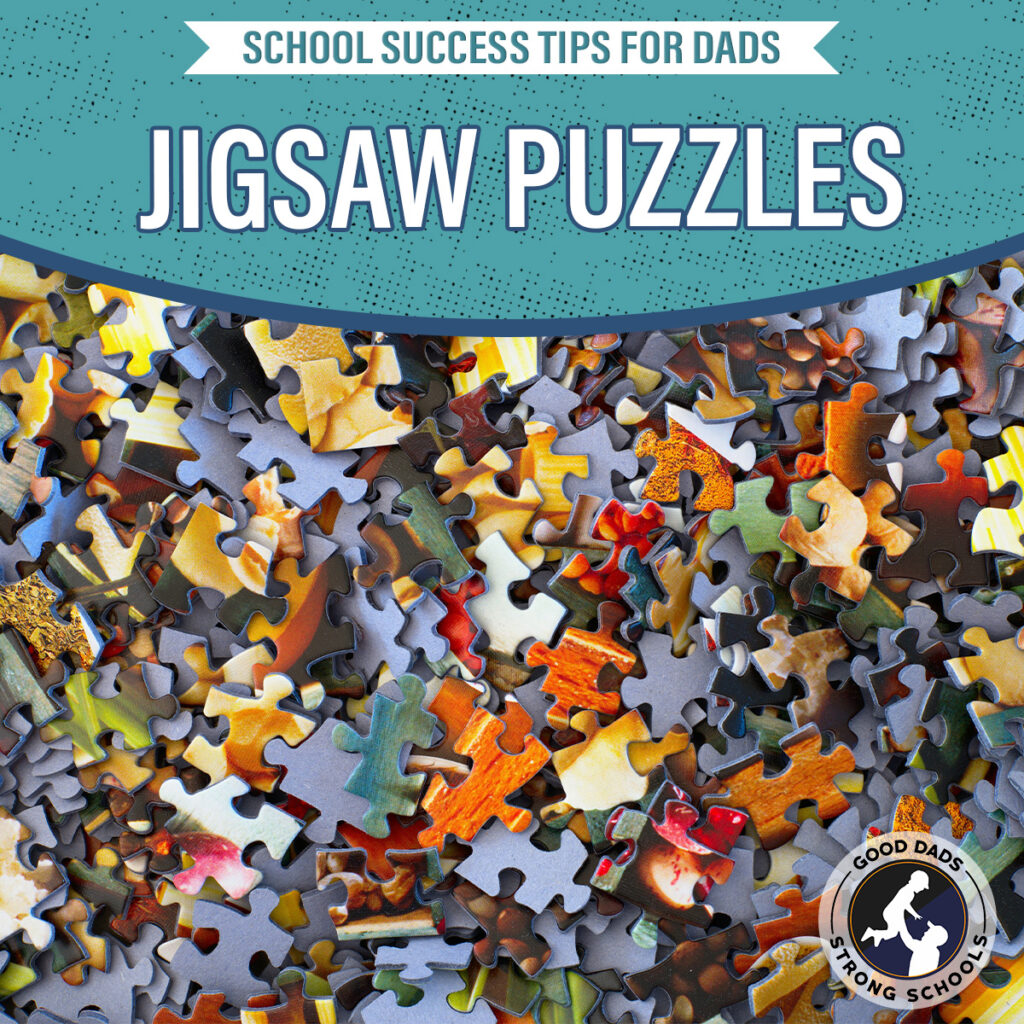
Here’s a great way to cure boredom: Put together a jigsaw puzzle! This classic rainy-day activity is perfect for practicing patience developing a sense of accomplishment after hard work. Start simple with small puzzles, 100 pieces or fewer, then increase the amount of pieces the more puzzles you put together. When you finish the puzzle, frame it for everyone to see!

Two words: Play charades! Charades can be a fun way for families and friends to work together as a team to solve a puzzle. The classic game doesn’t cost any money, doesn’t require a lot of space, and encourages out-of-the-box thinking to communicate nonverbally and work together as a team to score points.

Go on a family scavenger hunt! Explore nature, hide things around the house, or make it a game during a road trip. This activity encourages children to observe their surroundings and think outside the box. The game can incorporate some penmanship practice when you bring along a pen, paper and clipboard to record what you find on your hunt.
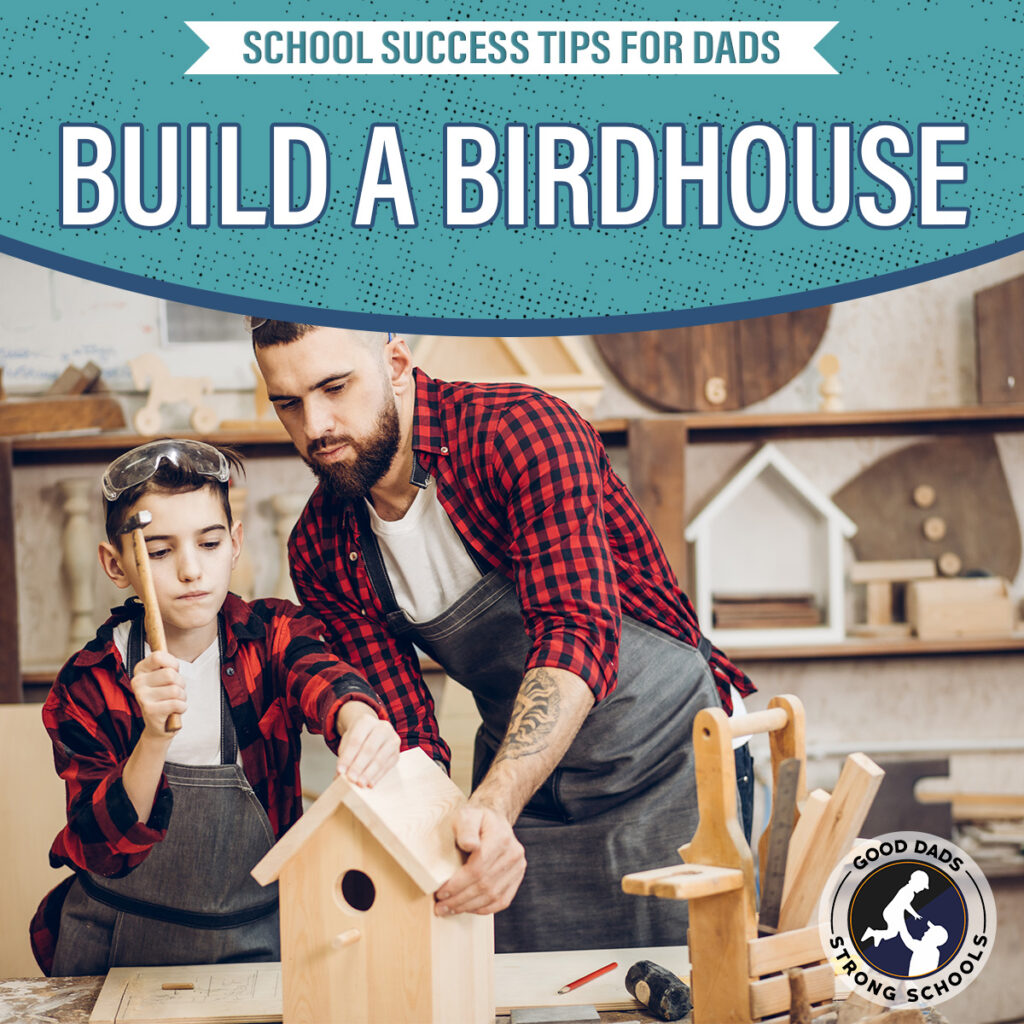
Looking to see some local wildlife up-close in your own backyard? A bird feeder is a great way to learn about local critters while supporting a healthy habitat! Either build a birdhouse with simple materials or buy a bird feeder from the store. Make sure to do some research to see what kind of food works best for certain bird feeders.
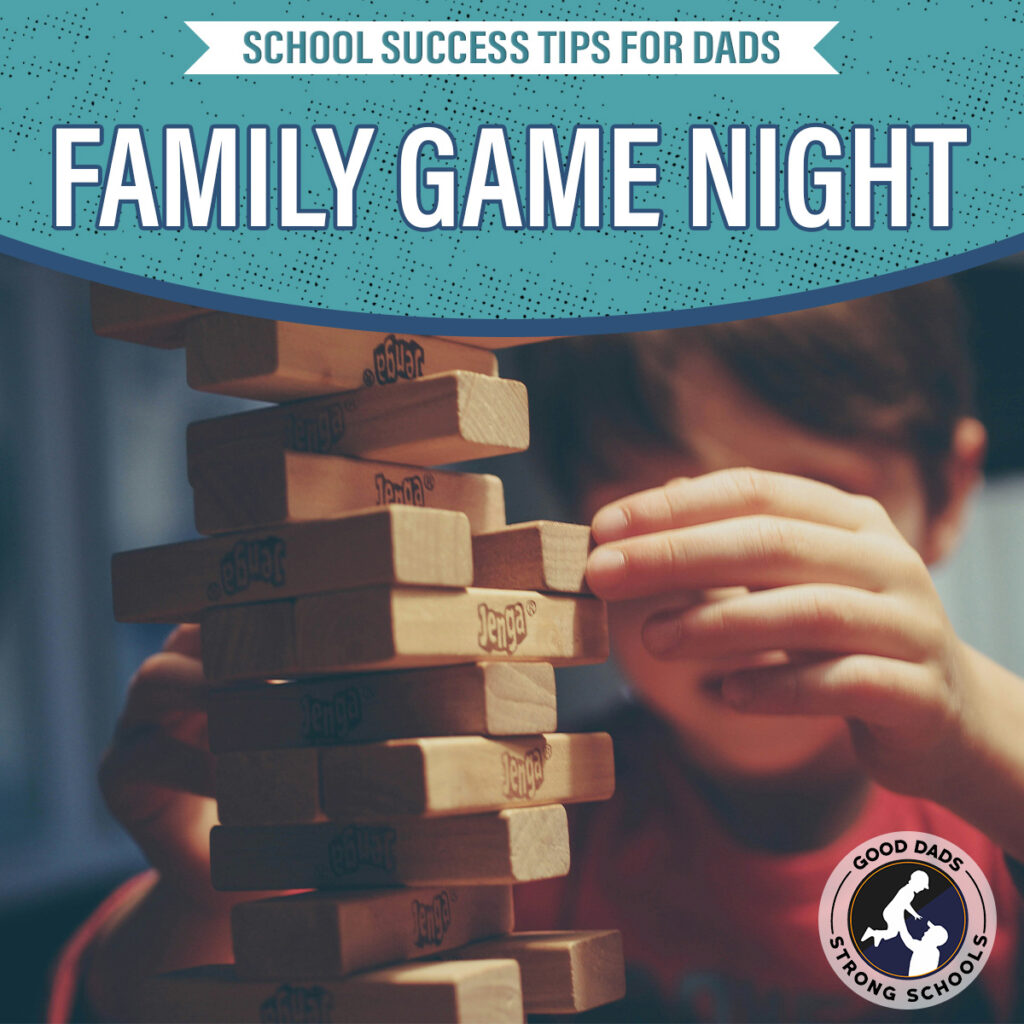
Some friendly competition allows for practicing fine motor skills, problem-solving skills and increased academic achievement. From Monopoly to Scrabble to Jenga, card, board or video games, the possibilities are endless. Some of the best games for elementary children have moving pieces, simple rules and an element of luck. Help your children practice taking turns by inviting the whole family to join your game night.
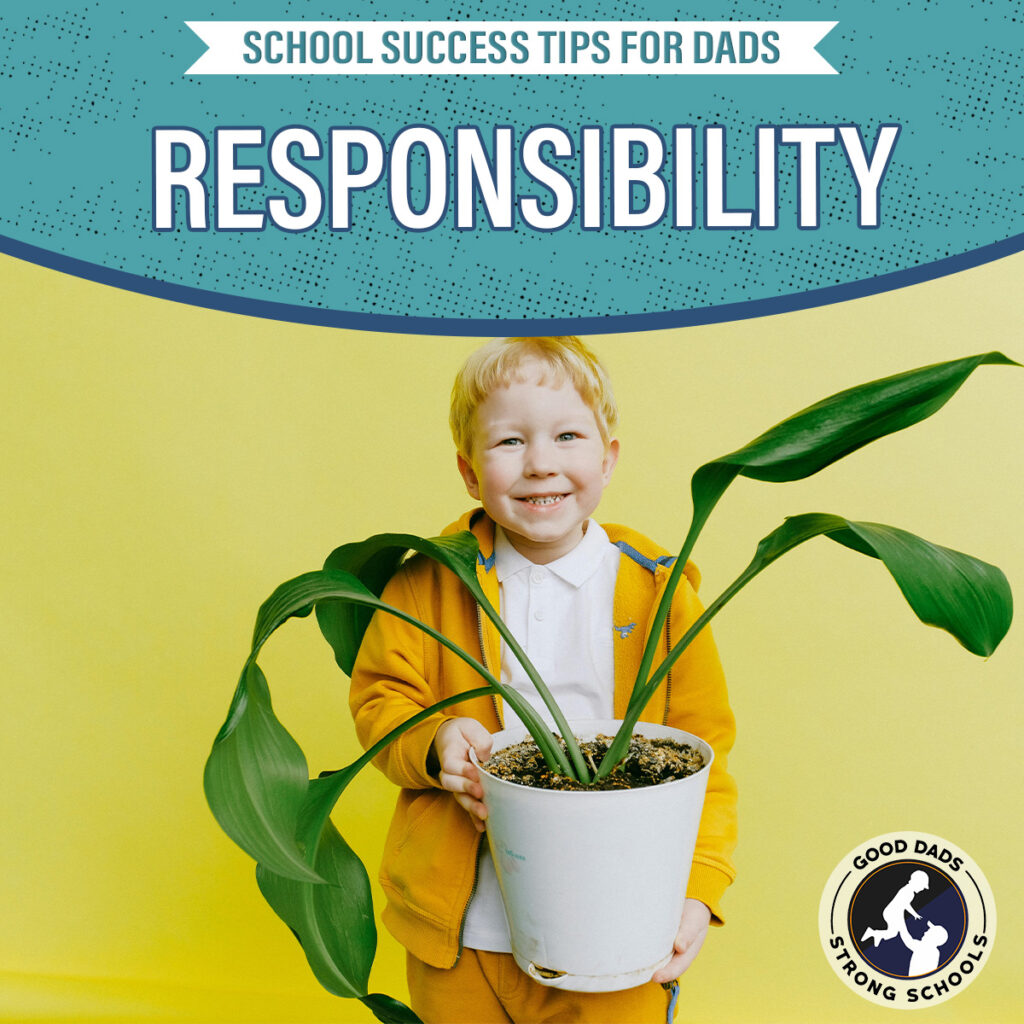
Give age-appropriate responsibilities to your kiddos. While you perform chores and other tasks around the house, let them feel included as you accomplish these! As children grow, they ought to be given more responsibilities. For younger children, focus on simple tasks that only take a few minutes, like unloading just the silverware from the dishwasher or pairing up clean socks from the laundry.

Join a local club or team if you’re looking to improve your teamwork skills! Do some research to find some age-appropriate clubs and teams for your child to be a part of. Ensure it’s an activity they actually want to be a part of and not just something parents like. Is your child the next junior chess champion, the next little-league MVP, or the next science-fair winner? Your child’s school might be a good resource for extra-curricular opportunities.
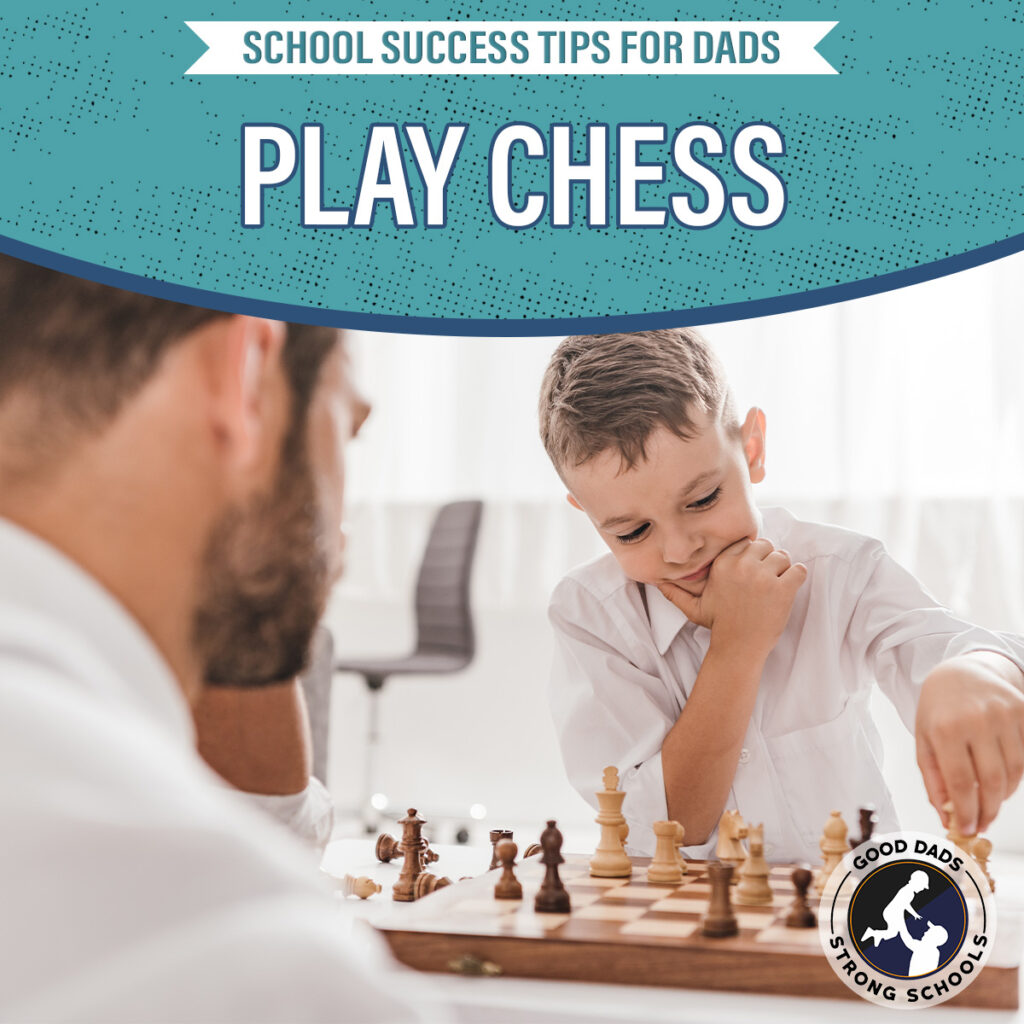
Checkmate! Chess is an oldie but a goodie when it comes to board games. Take the time to learn how to play, or if you already know how to play, teach someone who doesn’t. Playing chess has been shown to improve memory and concentration skills. Very young children might not be able to grasp the moves for all the different pieces, so starting with checkers is a good compromise.

Let your children help choose their clothes. Teach them about pattern-clashing, and which colors go great together. When your youngsters have agency to make decisions for themselves, even inconsequential ones, they’ll build confidence. If you find your children have trouble choosing, try selecting a couple of outfits to pick between. Kids are more likely to pick something if there are options available! Select outfits together, maybe even go for a matching pair. Who doesn’t love twinning?!

♫Do you wanna build a snowman♫? Of course you do! Building a snowman stretches your child’s creativity and problem-solving muscles. It’s a great way to get outside during the chilliest months of the year and get some fresh air while working together. Just make sure to bundle up! Try this fun activity next time school is cancelled for a snow day.

Have you ever wondered where you came from? Family genealogy can help with that! Children desire to know where they fit into their family, and how they’re related to their aunts, uncles and cousins. Brush up on your artistic skills by creating a big family tree with paper or on the computer. Then you’re ready to dive into research together: Discover what your last name means, where your ancestry started, or learn something new about your family history.
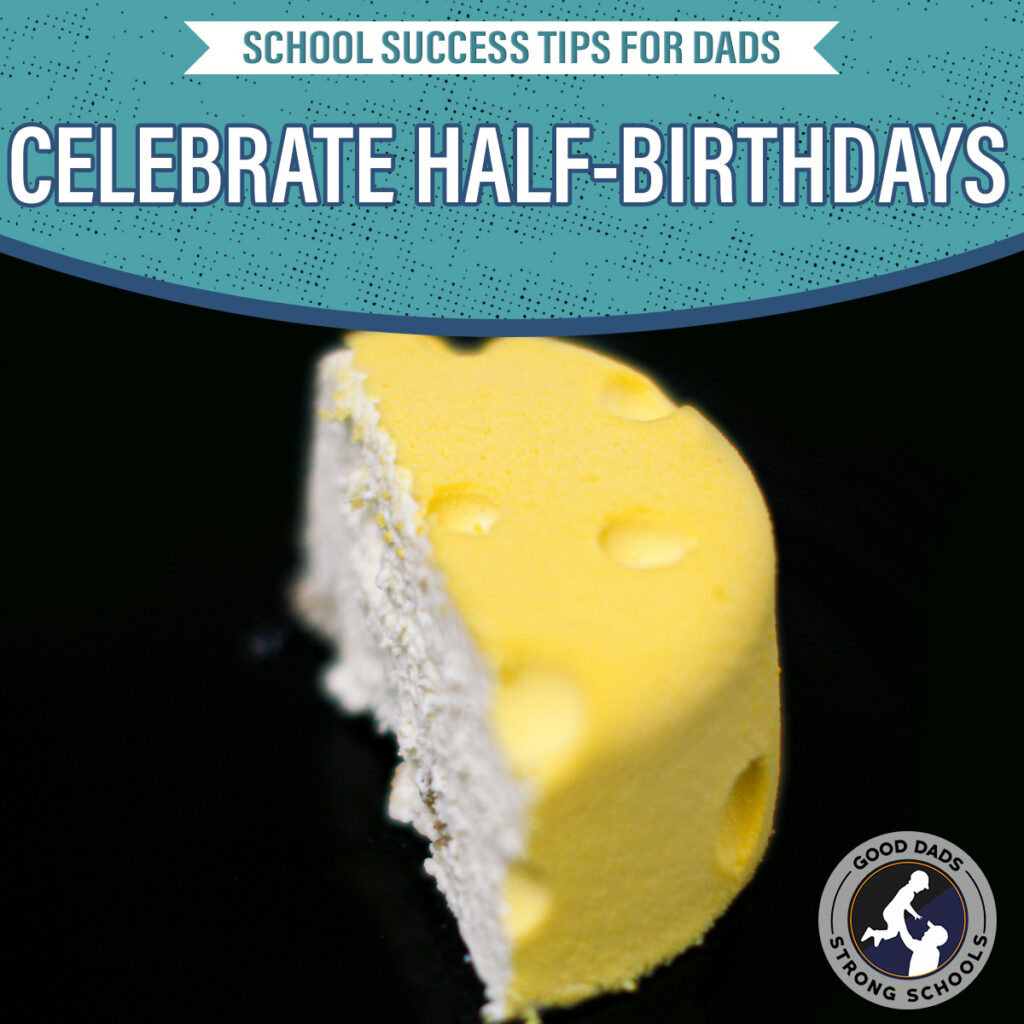
Celebrate your half birthday with half a cake! Celebrating half birthdays and having a cause for celebration in general helps increase a child’s happiness and self-worth. Your half birthday only comes once a year, so spend the time wisely! This activity can also help your child learn the 12 months in a calendar year.

Leave notes in unexpected places for friends and family to find! Who knows, you might make someone’s day! All it takes is a Sticky Note or a piece of scrap paper and some tape.
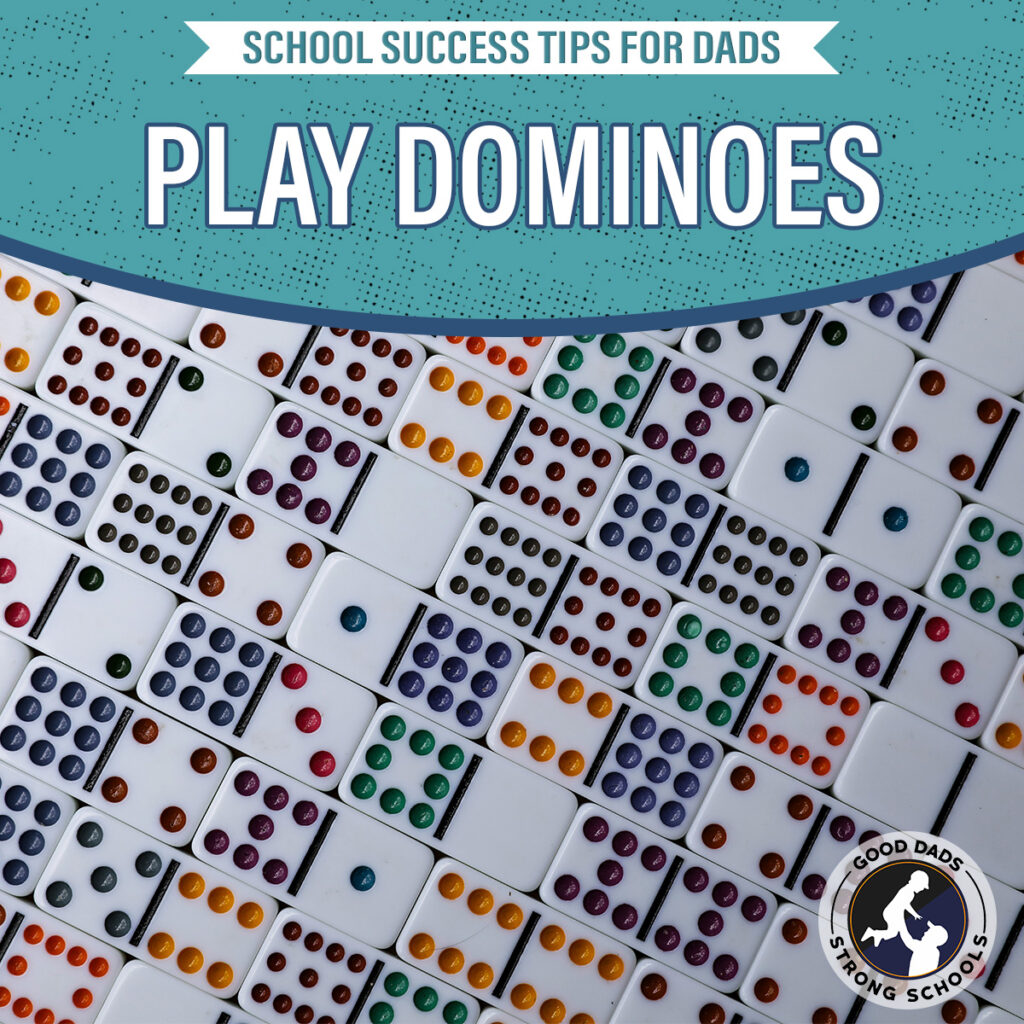
Domino! Dominoes can be played in a variety of ways: from “All Fives” to “Chickenfoot” to stacking them in a line and knocking them down! This classic game is a fun and easy way to practice pattern recognition, prediction and strategy while wrapped up in a little friendly competition.

Are you meeting someone new? To prepare, practice introducing yourself and shaking hands. Teaching your child to have a nice, firm handshake and to make eye contact when meeting new people can help increase their social skills.
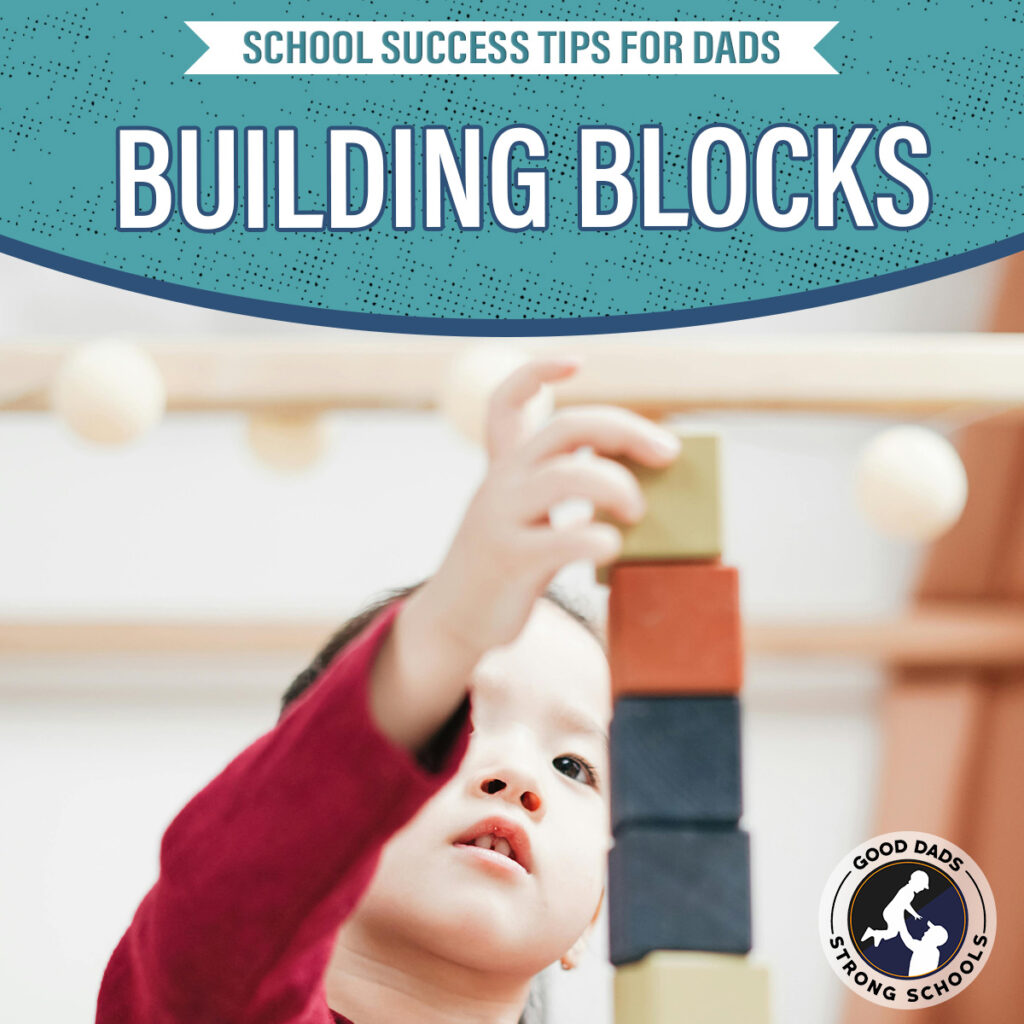
Building blocks, whether wooden, foam, or Lego, are a great way to cause a spark of creativity in youngsters. Build houses, towers, and other structures with your family. Building blocks help with fine motor skills and stretch the imagination.

Have you ever been told to take a hike? It might be a good idea if you want to get some exercise and spend time with your family! Go on a hike together as a family. There’ll be plenty of sights and sounds and things to discover together. Hiking in the same spot in different times of the year is a great way to see how the landscape changes and learn about the flora and fauna throughout the seasons.
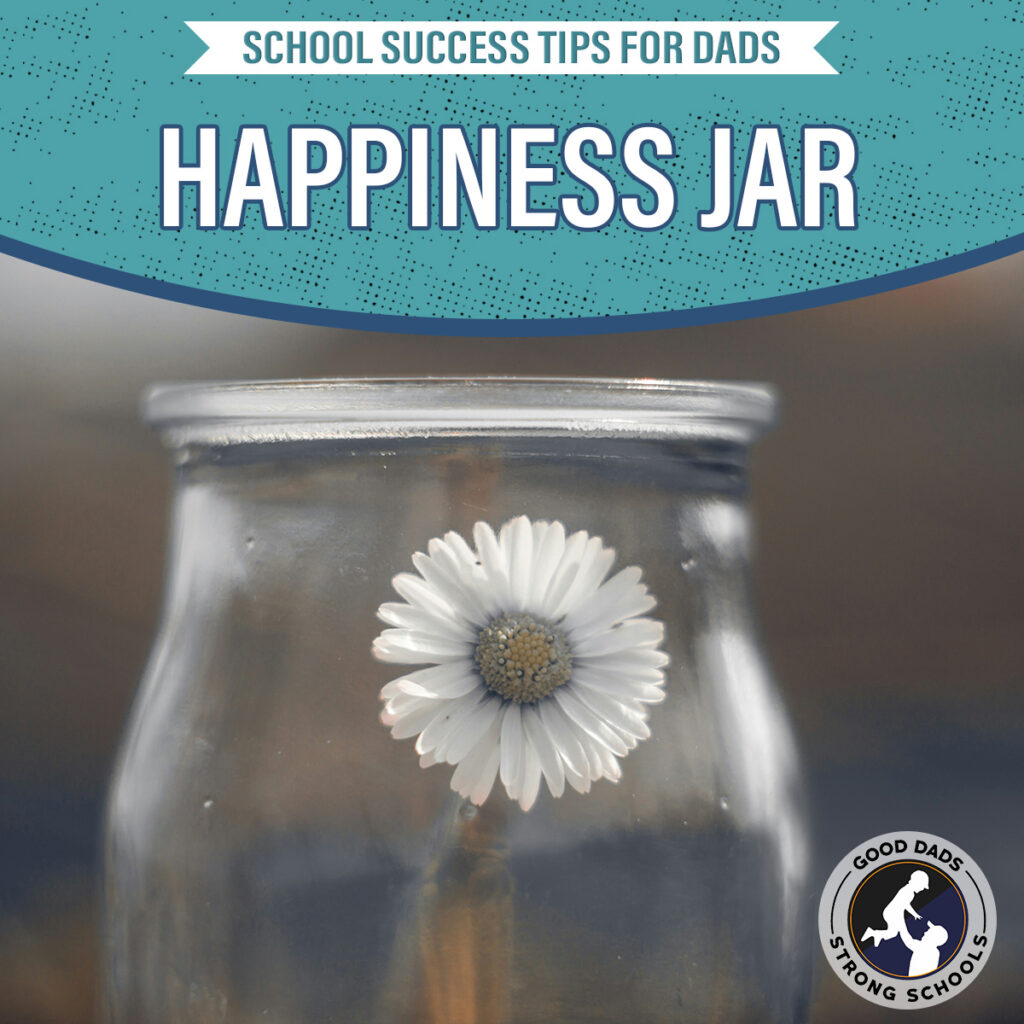
Looking for a little bit more joy in life? Start a happiness jar! Throughout the day, write down things, people or moments that make you happy. Then, at the end of the day, week or month, open the jar and read all the things that made you happy! It’ll foster a sense of gratitude and help you pinpoint the reasons that make you happy.
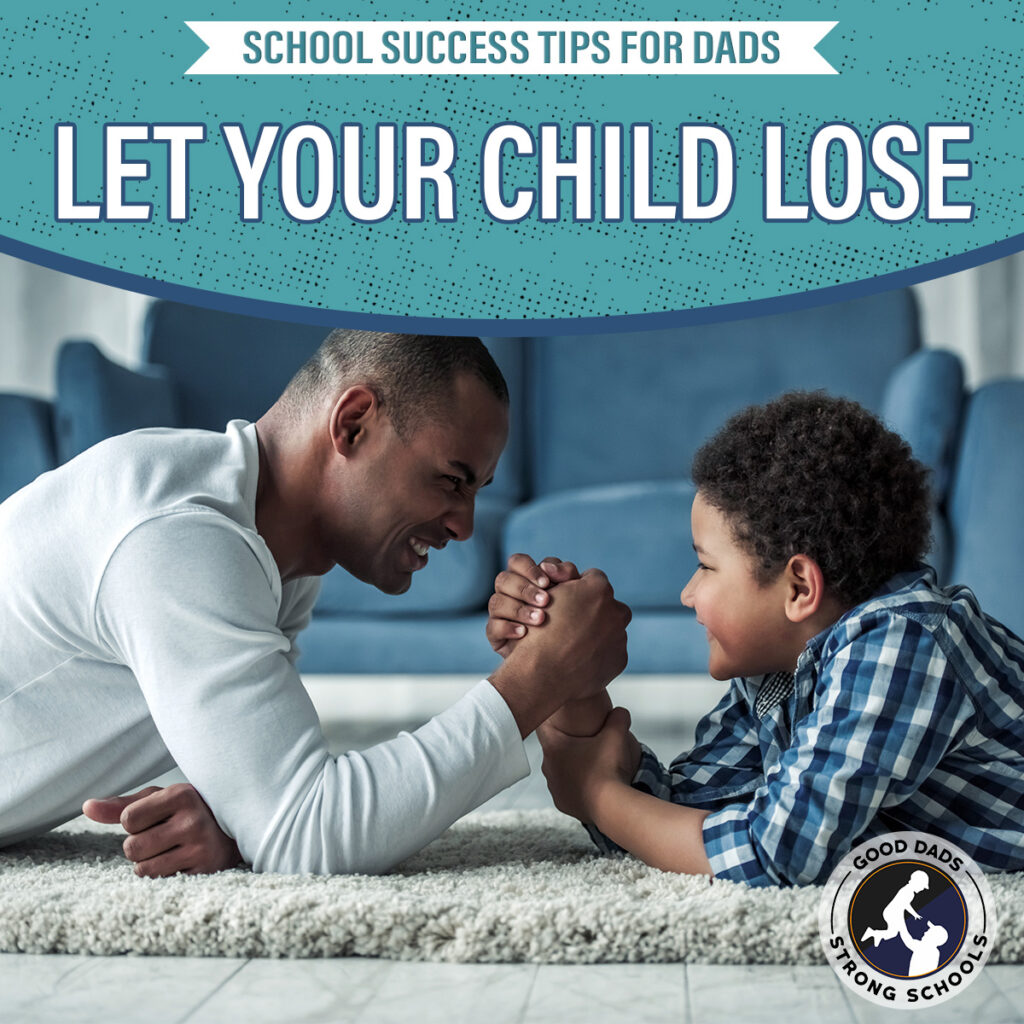
You can’t win them all: Let your child lose. It might not feel good in the moment, but failure is an important thing to face in a child’s life. It helps them build resilience and understand the importance of effort. Focus on inconsequential, low-stakes losses, like losing a game of cards or bowling. Being a good loser is important, just like being a good winner.
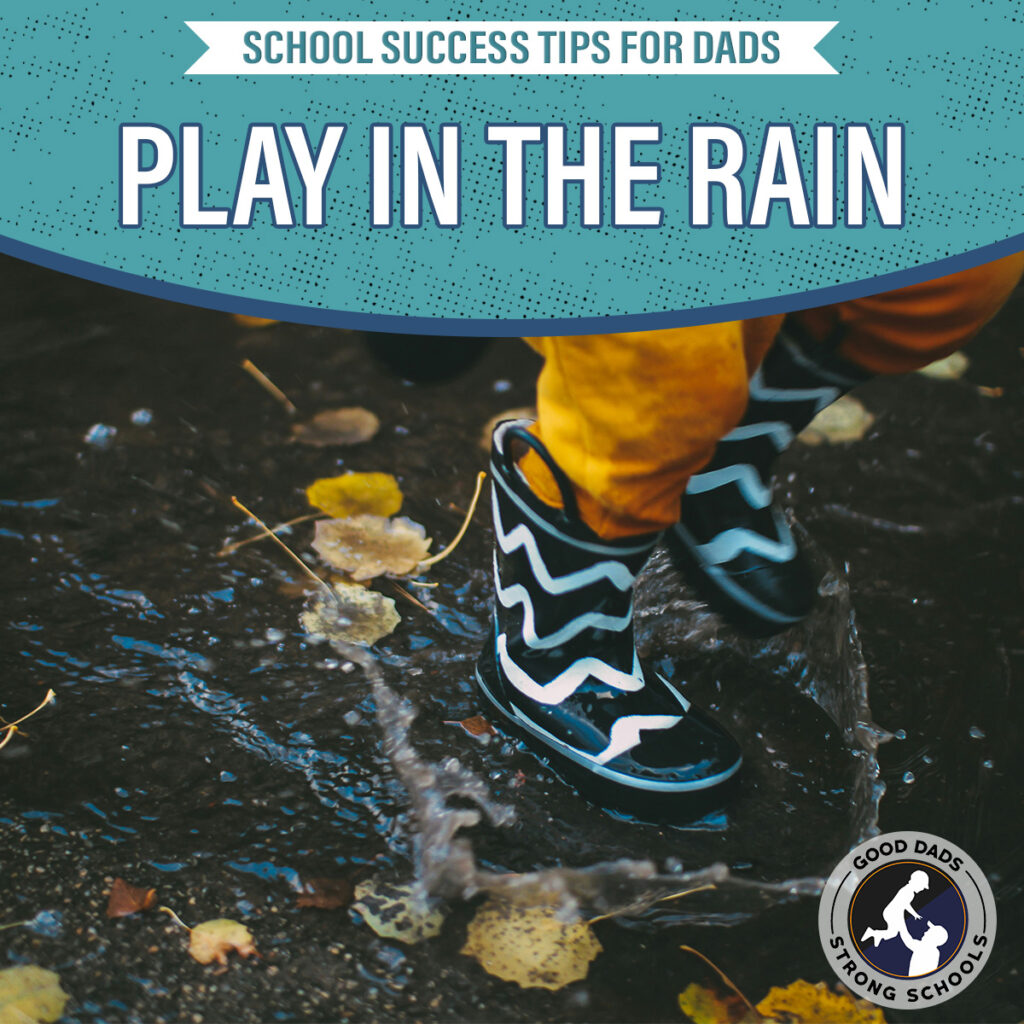
A rainy day doesn’t have to be all doom and gloom! With the right kind of clothes and shoes, playing in the rain is a great way to splash around and have fun.
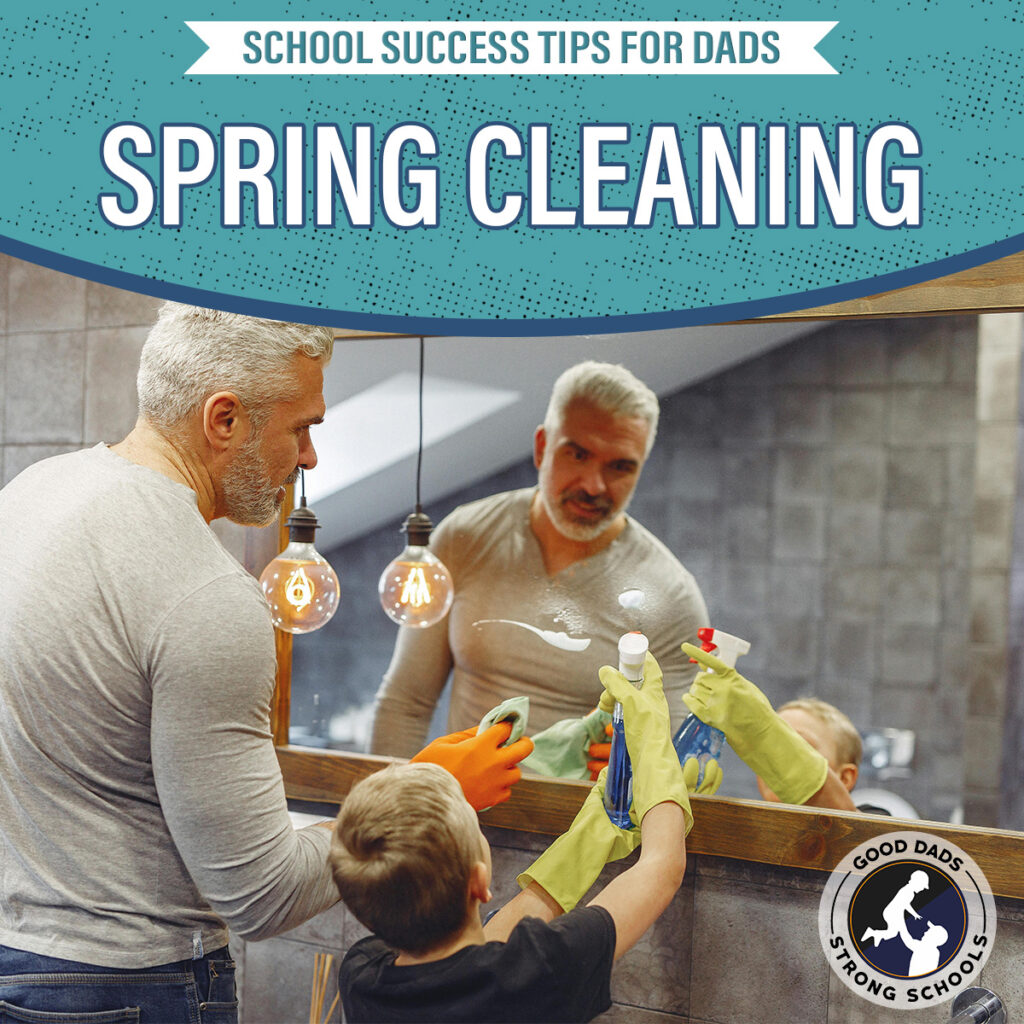
♫Cleanup, cleanup, everybody do your share♫! Spring cleaning is a great way for families to get moving and accomplish tasks. Many hands make light work! Encourage your children to start in their own rooms by recycling old drawings, tossing candy wrappers, and donating pre-loved toys and too-small clothes so someone else can enjoy them. Children can also help with small decluttering tasks in shared home spaces, like testing pens from the junk drawer on a piece of scrap paper and tossing the ones that are out of ink.
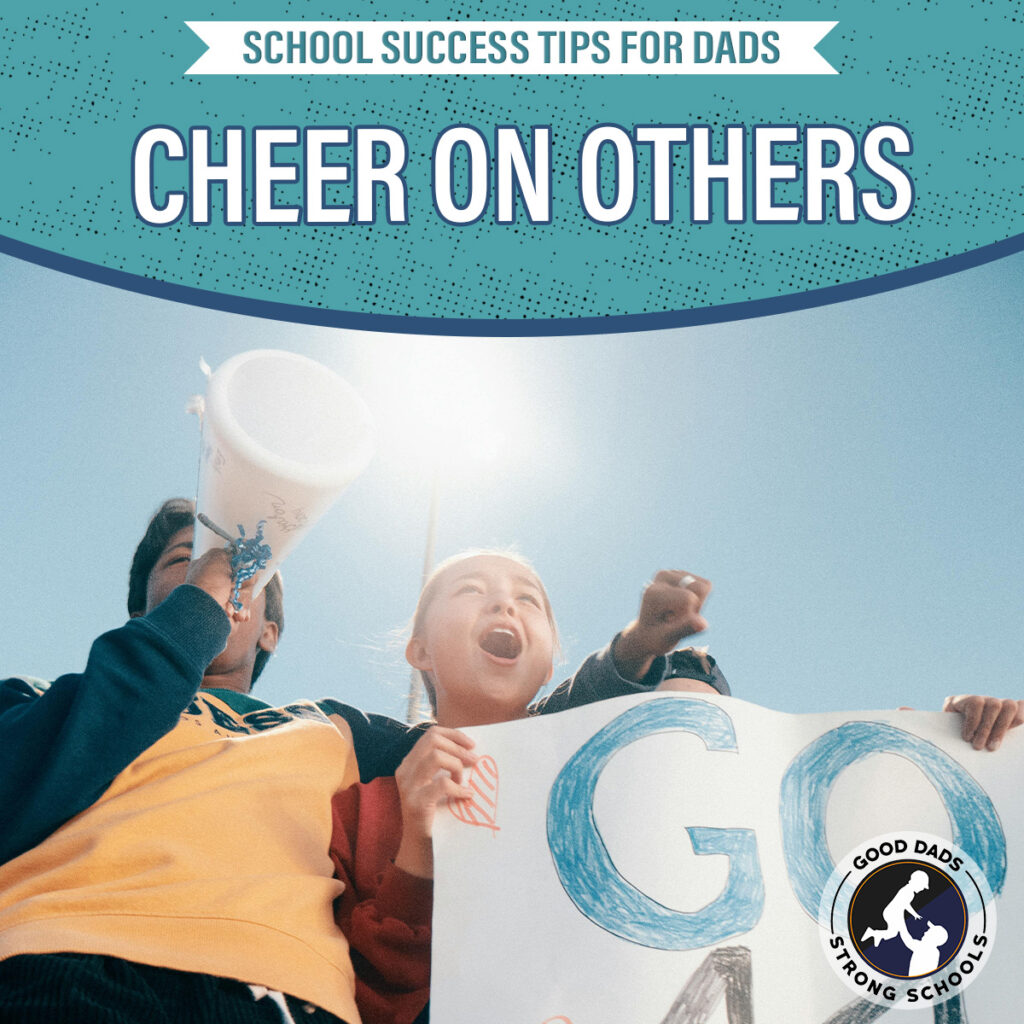
Go team! Cheering on others fosters a positive community and can improve your mood. When children have the opportunity to cheer on something other than themselves, e.g. a family member or sports team, they can learn to celebrate others’ successes.

Looking to get active? Family walks can help with that! Find a local trail or walk to a fun destination together as a family. Family walks help with social skills and are a great excuse to get the blood flowing. What are you waiting for? Getting your steps in is a great task to add to the daily routine.

Homework doesn’t have to be all bad! With someone lending a helping hand, it can help ease the stress that comes with homework and can lead to further success in schools. Parents who help their children with homework by creating a quiet work environment, offering moral support and being available to answer questions are also putting themselves in a good position to boost their relationships with their students’ teachers and principals.
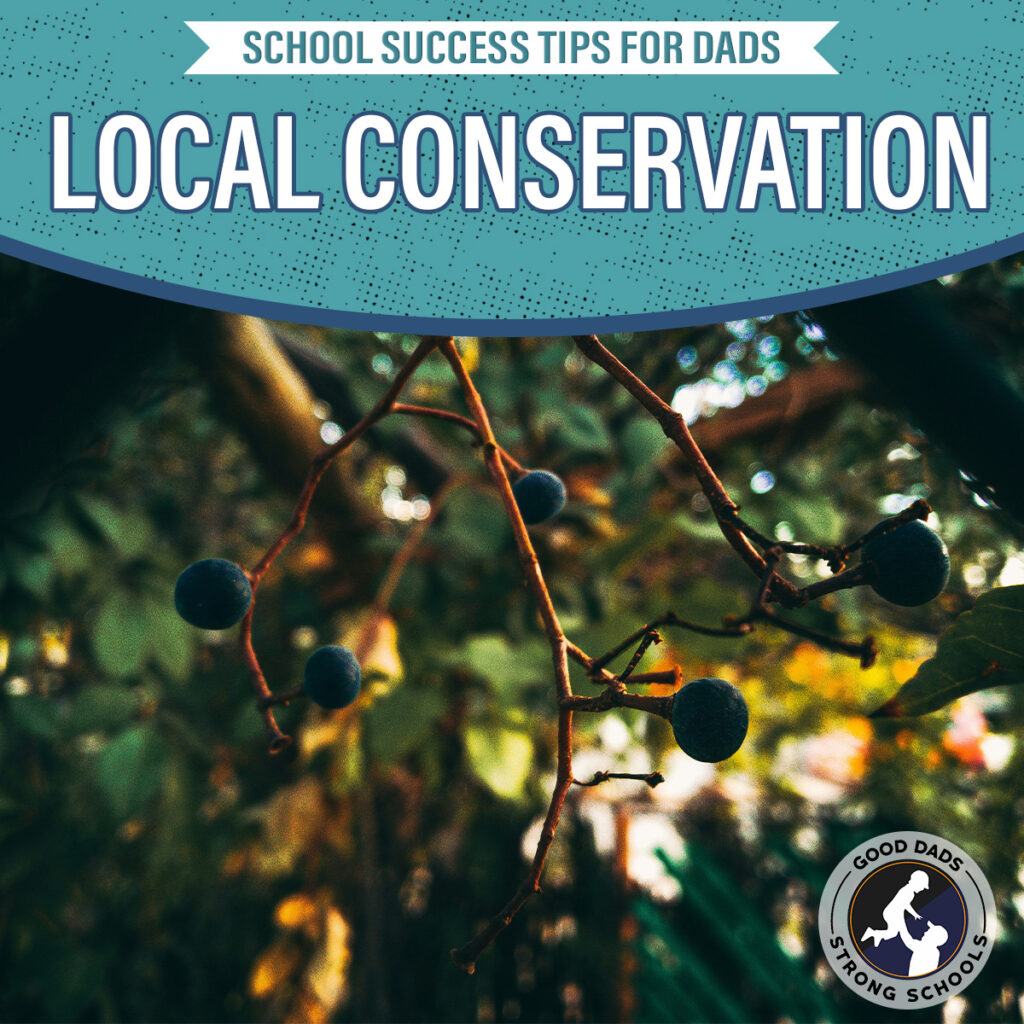
Is your kiddo wanting to get out in nature? Visit a local conservation area! This allows you to teach children the importance of conservation areas and learn more about the biodiversity in the area. Flowers and grasses, rivers and streams, bugs, fish and other animal species all contribute to an ecosystem that’s chock-full of leaning opportunities for parents and children alike.
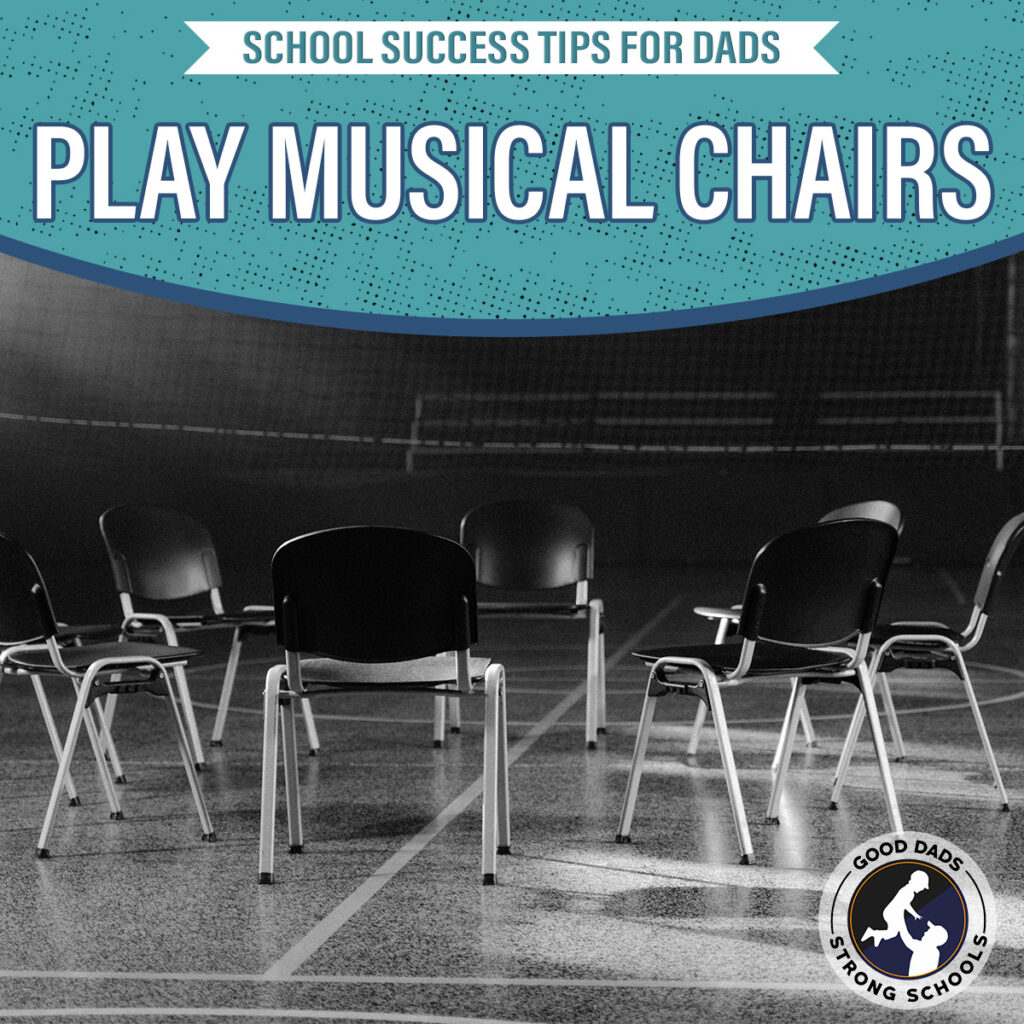
Put on your favorite catchy tunes, set up enough chairs for everyone (minus one, of course), and get to playing! Musical chairs are a great way to get the body moving and to practice your reaction time. May the best one win!

Treat yourself and/or your kids to a surprise treat. This could be a food or an activity. A lot of kids love surprises, so if they’re being good, surprise them with a treat.
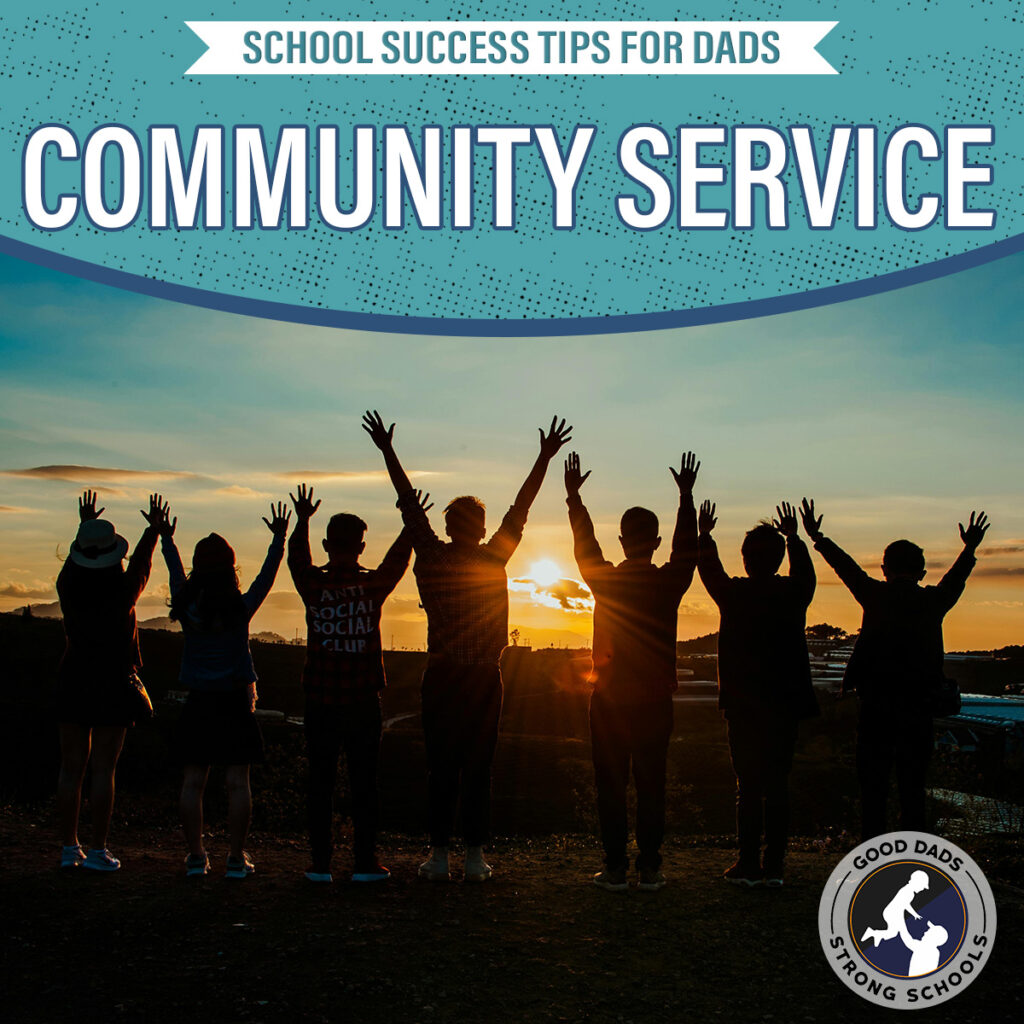
Looking to give back to the community? Participate in a community service event! Community service provides real-world learning opportunities and can help foster new relationships formed outside of school. An increased sense of community helps children feel like they belong, and that they can make a difference for others. Not sure where to start? Cities are always looking for people to participate in park cleanups and canned food drives. More information is just a click away.
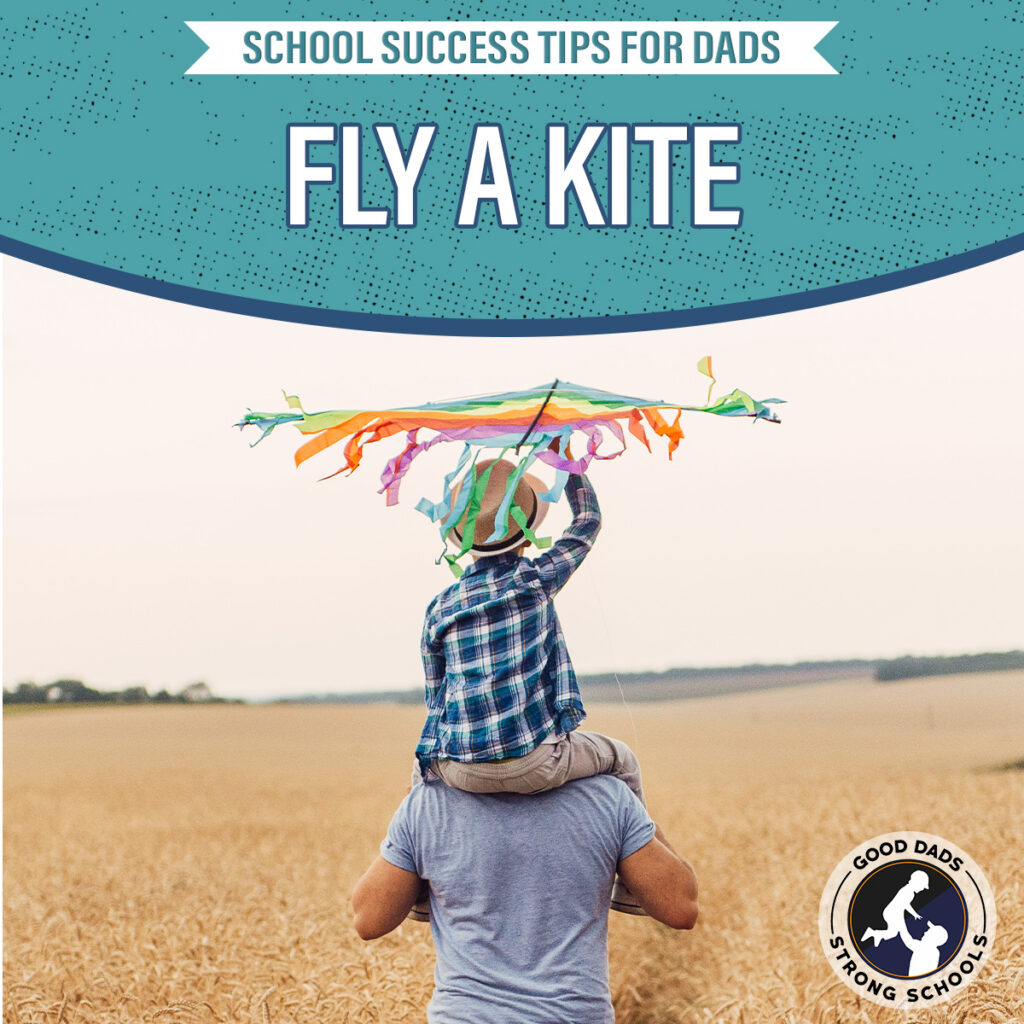
Have you ever been told to “go fly a kite?” Now’s your chance! Buy a kite from the store, or make one of your own using paper or cardboard, some string and a hole punch. Make sure it’s a windy day; you’ll want your kite to soar! Pick a park or field a safe distance from trees and power lines.
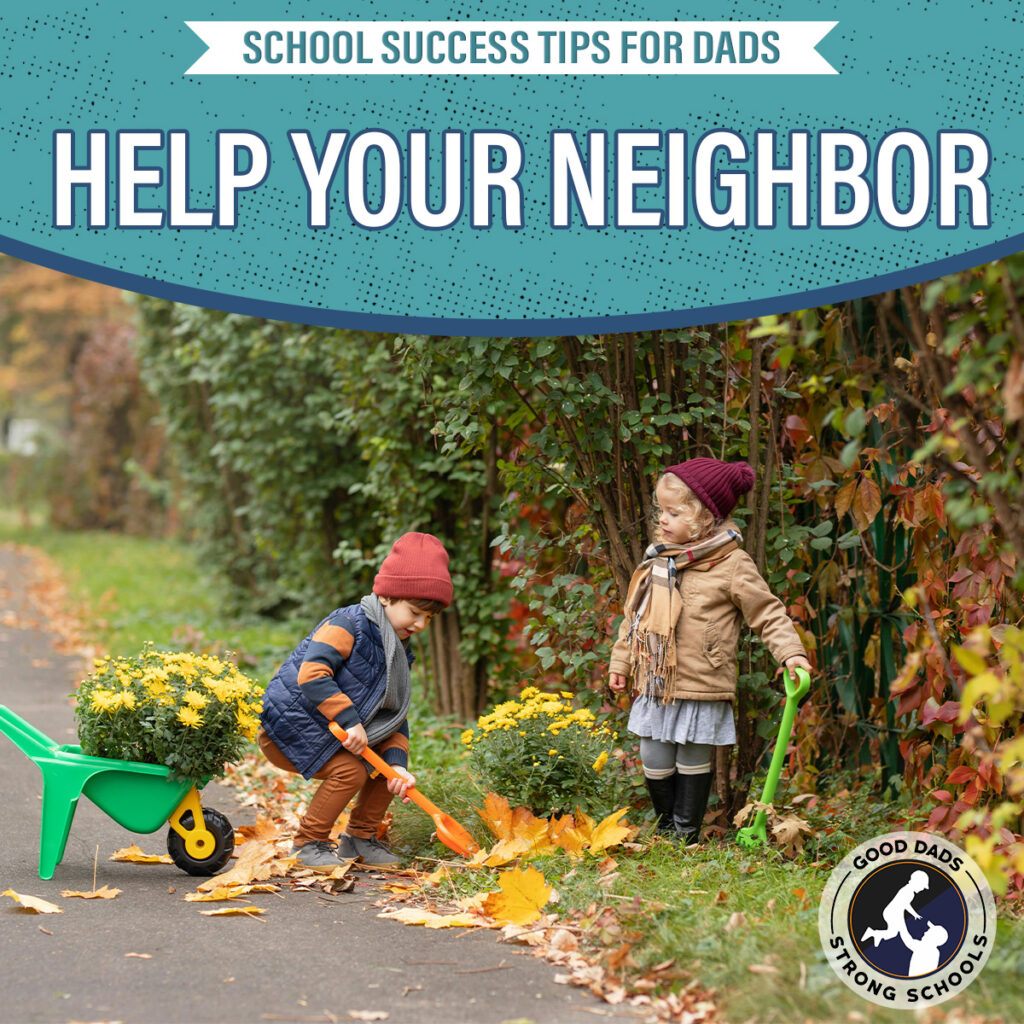
Be a good neighbor today! There are several ways you can help your neighbor, such as raking leaves, or pulling weeds. If you live in an apartment or don’t have a yard, encourage your children to ask neighbors if they can take out their trash or sweep their patio. Aim to find chores that only take a few minutes, so your youngster doesn’t lose focus. By helping others, children learn the benefits to their mental health while increasing their social skills.

Woo-hoo! Making a team cheer for your family is a great way to increase enthusiasm for the day or an upcoming activity. Children long to be a part of something, and a family cheer helps kiddos build a sense of identity. Create a cheer that includes a character trait or the family name, come up with simple motions or dance moves and perform your cheer together. Go team!

Play with someone new! If your child notices someone on the playground by themselves, encourage your kiddo to ask them if they want to play.

Sometimes a simple thank you can make all the difference in the world. If someone says thank you to you, say “you’re welcome” in return. It helps to show a mutual connection is being made and helps to increase communication skills.

There’s nothing like a bond between a dad and his daughter. That’s why a daddy date night allows for a perfect bonding experience! By having a daddy date night, you show your child how much you love and respect them, and in turn, they’ll be able to form stronger bonds with friends once they’re back to school. Dress up, go to a nice restaurant (or have dinner in), and spend a night on the town. Just be back before bedtime!
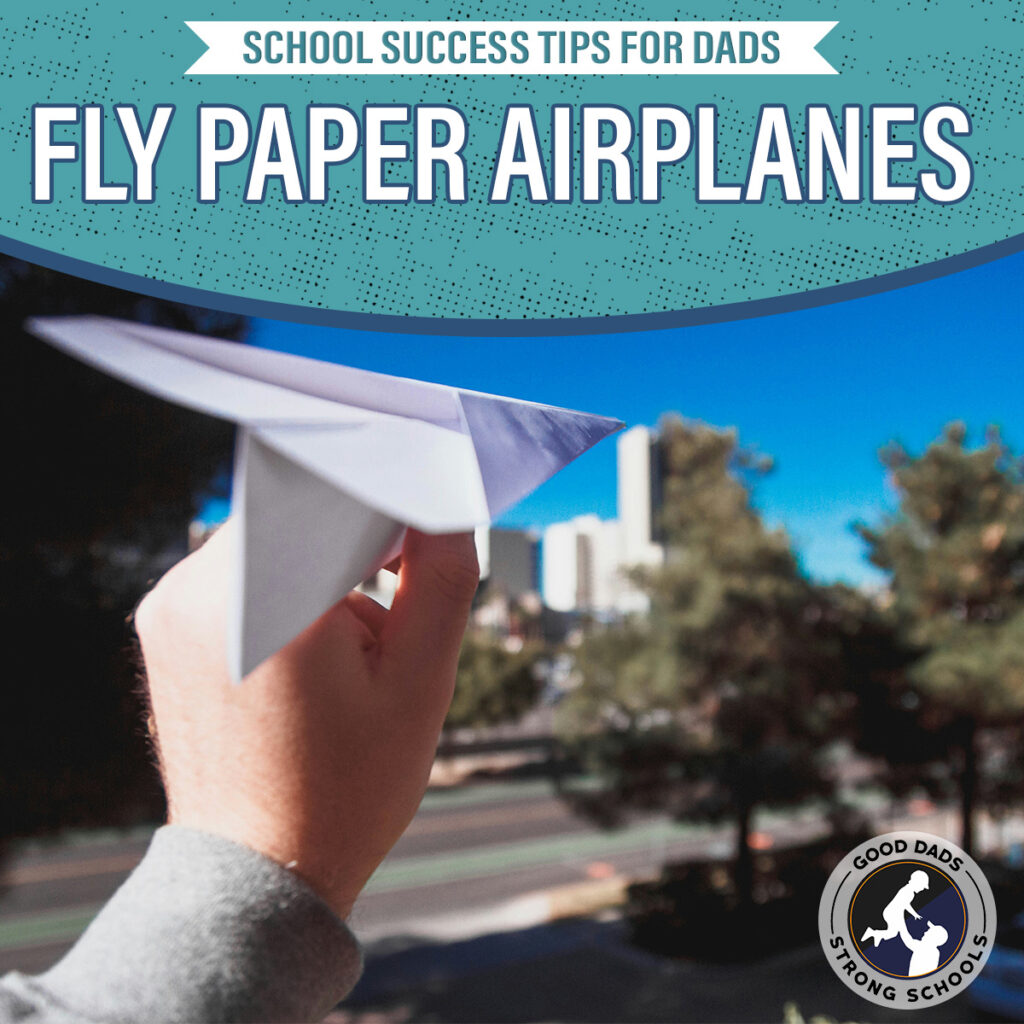
Zip! Making and flying paper airplanes is a fun rainy-day activity that’s screen-free. Through the process, you practice following instructions and help stretch the creative muscles in your brain. Add an extra element of fun by using colored construction paper or adding awesome drawings to your paper airplanes. Then, let your airplanes fly and see whose travels the farthest.
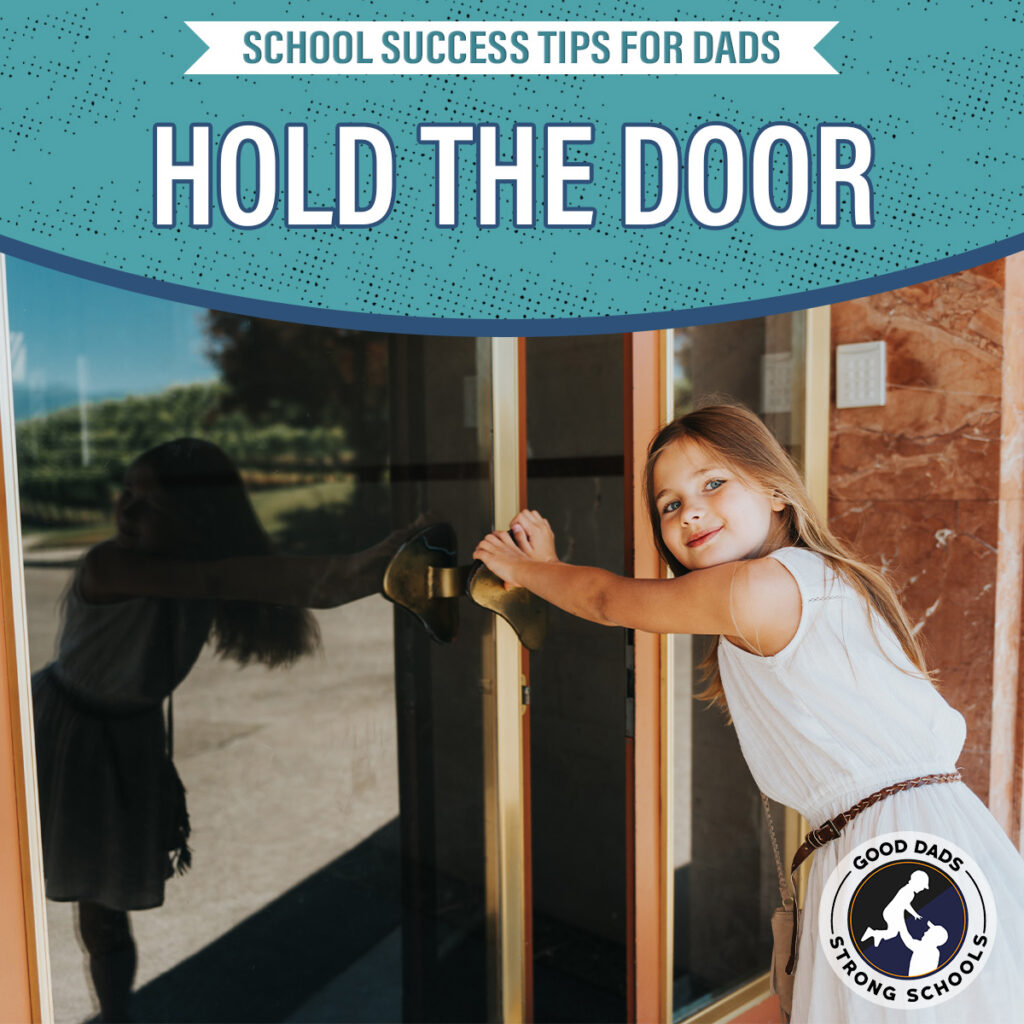
Looking for a simple yet effective way to spread kindness? Hold the door open for others. It’s a great way to show strangers that you care, and it only takes a moment! When we teach our children virtues like generosity, we’re paving the way for a better world. This is also a perfect opportunity to practice another of our Tips: Saying “thank you” and “you’re welcome.”

As parents, we want kids to follow our example. Don’t say one thing then do another, or have the philosophy of “do as I say, not as I do.” It will only confuse your youngsters! Instead, set a good example by making your words match your actions. Children learn best by observing others, and they are likely to mimic what they see from grown-ups around them.
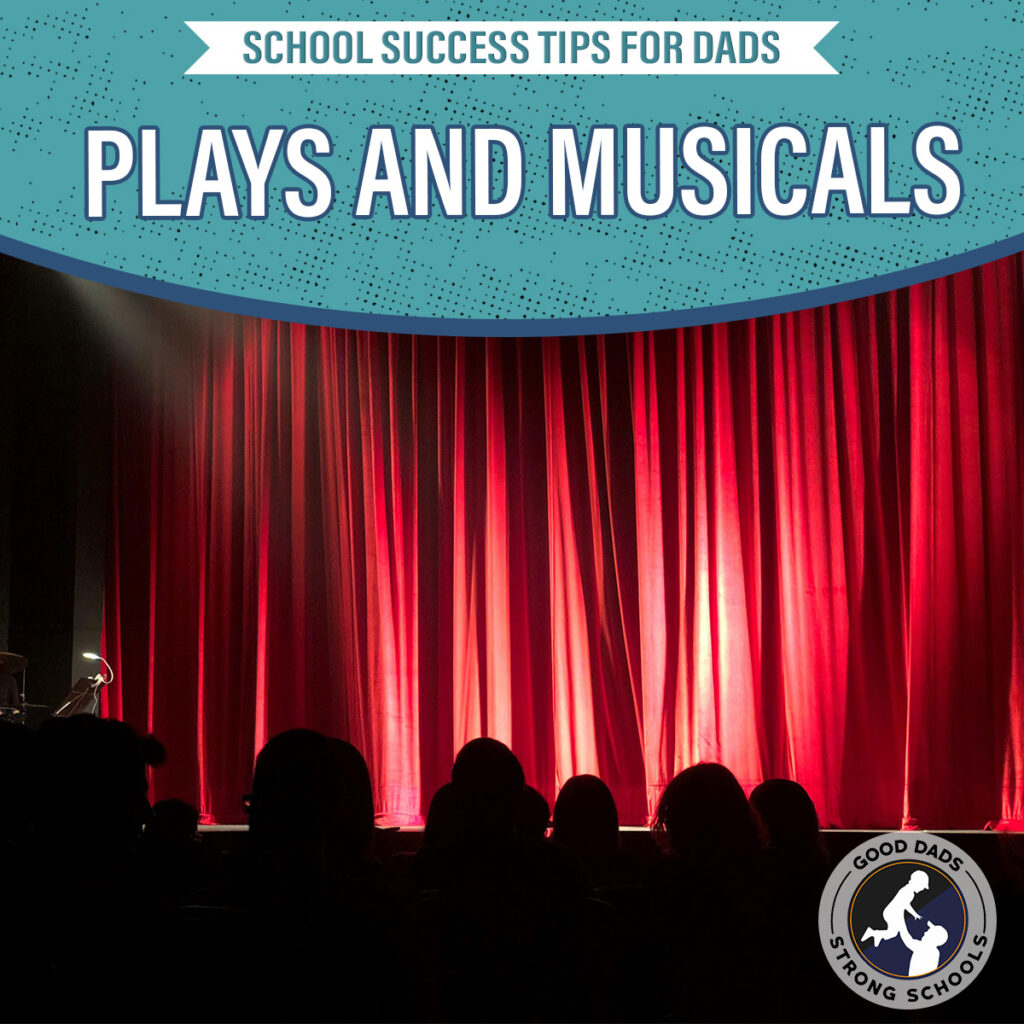
Thinking about the arts? Go to a play or musical! In doing so, you can increase sparks of creativity and improve your vocabulary. Don’t forget your theater etiquette!
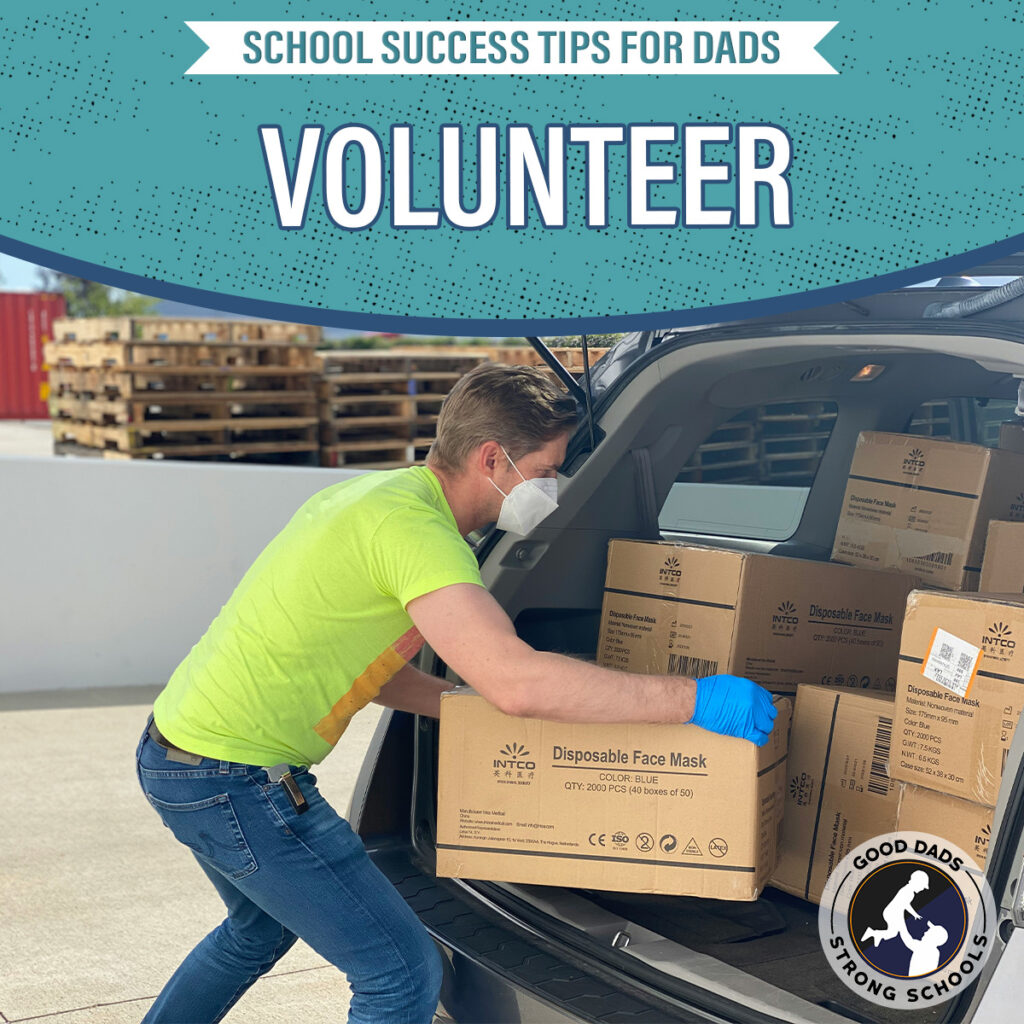
It’s been shown that volunteering helps increase academic performance, critical thinking and problem-solving skills. Don’t know where to start? That’s okay! Many local churches and nonprofits are looking for volunteers at places such as soup kitchens, food banks and animal shelters. The possibilities are endless!

On your mark, get set, GO! Three legged races improve balance and coordination as well as cooperation and teamwork—perfect skills for youngsters who getting ready to succeed in school.
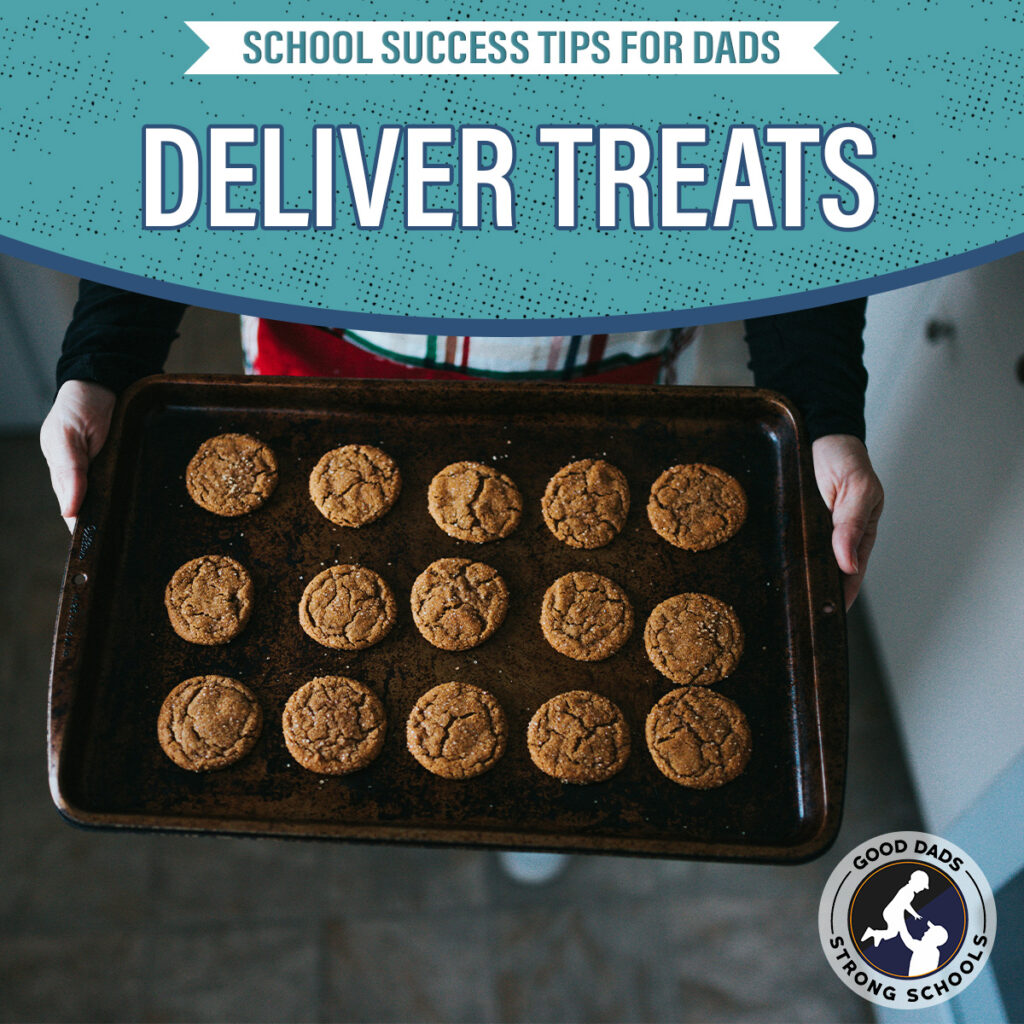
From rice krispie treats to chocolate chip cookies, shared homemade treats can increase your happiness and foster a generous heart. Get your children to help by measuring (great for youngsters learning about fractions!) and mixing ingredients (perfect for fine motor skills), and collaborate on icing, frosting and sprinkle decorations. Your students need opportunities to practice generosity, and they’ll be so proud of their sweet treat creations!
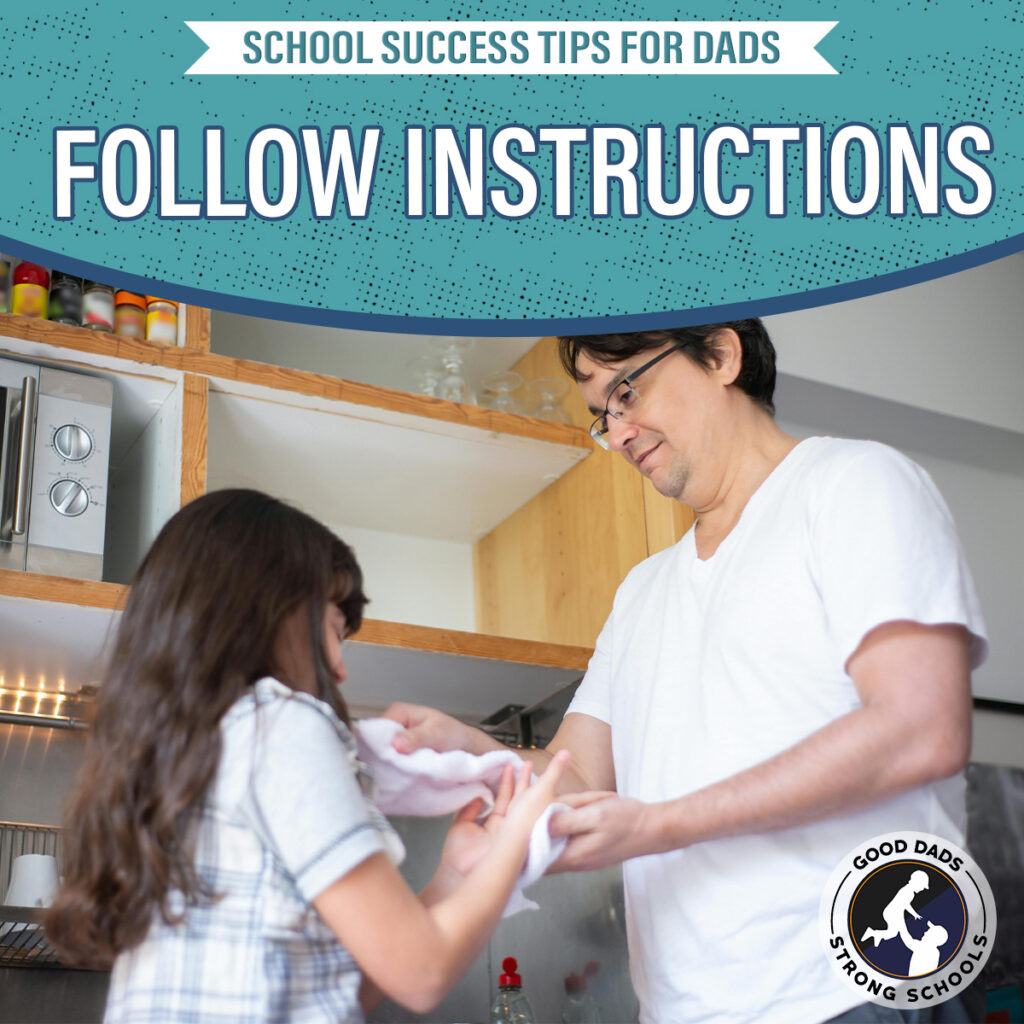
Following instructions is an important skill for young children to learn. Sometimes, it can even be life-and-death! Start homing this skill by encouraging your youngster to learn the rules of your house, write down the instructions of something simple like making a peanut butter and jelly sandwich, or play a game of follow the leader. Following instructions for games is a great way to learn how to follow instructions in school.

Want to strengthen your family’s bond? Start a new holiday tradition! No matter which holidays you celebrate, there’s always room to start a new annual tradition by doing a fun activity as a family. It doesn’t have to be anything big! Just something to make your family smile. It’s extra fun to snap a family selfie during your brand-new tradition and look back on the first memory as the years go by.

Looking to get in touch with nature? Have a nature photoshoot! A good time to go outside and take pictures is during golden hour, but that doesn’t mean it’s the only time you have to go! Make a game out of it: Research local flora and fauna and see if you can capture photos of each item. Budding nature photographers will also take to heart the famous naturalist mantra: “Leave only footprints and take only pictures.”

You don’t have to visit anywhere fancy to collect a cool postcard. Local businesses have an abundance of postcards of all kinds. Find one that reminds you of a loved one, write a special note and send it in the mail or give directly! By doing so, you’re helping your youngster increase their writing and communication skills. Plus, it’s a great way to teach young ones about the mail system.
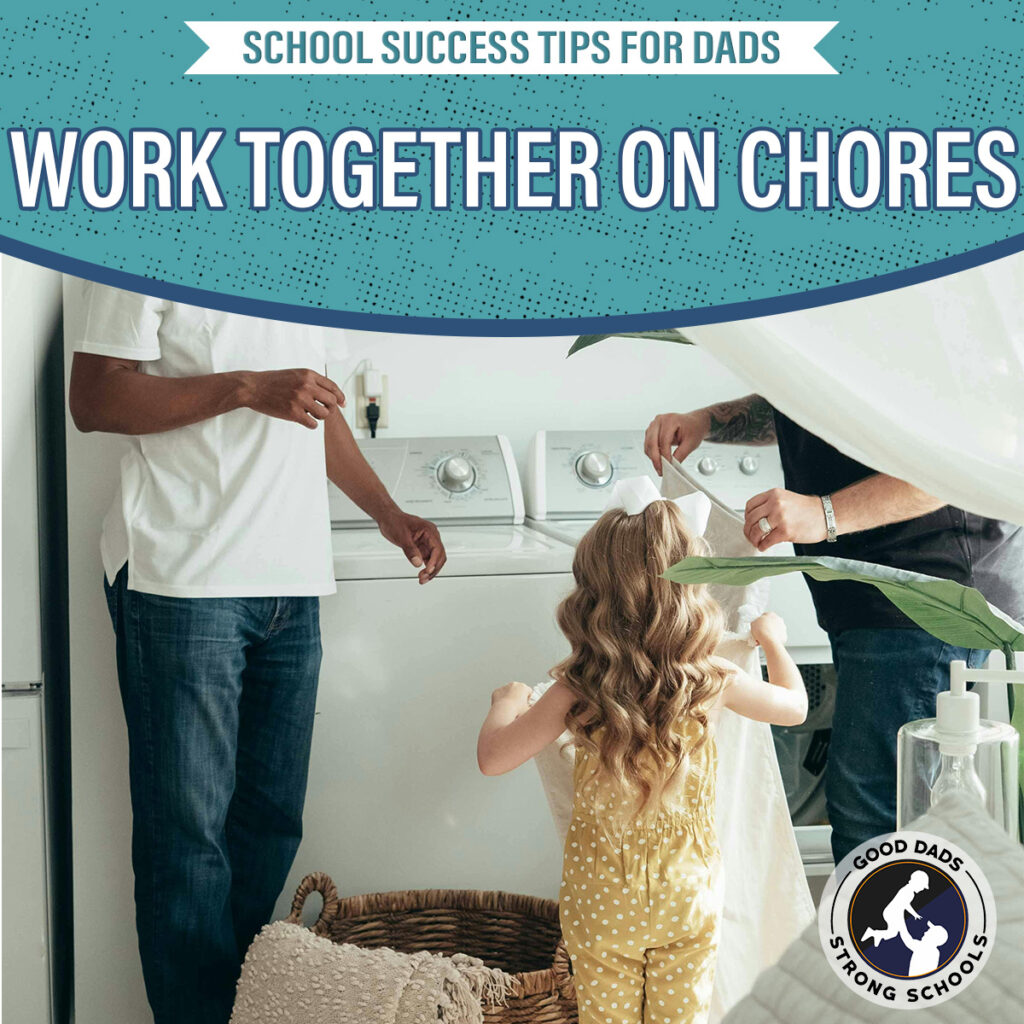
They say many hands make light work. Cliché or not, the sentiment is true! Helping each other with chores helps increase a sense of teamwork and accomplishment in kids young and old. Children with developed senses of responsibility are more likely to succeed in adulthood.

Some people think kids ask too many questions. We think asking questions is great for starting conversations! Asking questions sparks curiosity and can help promote school readiness. (Plus — we have more than 100 fun and thought-provoking Conversation Starters for kids of any age.)


